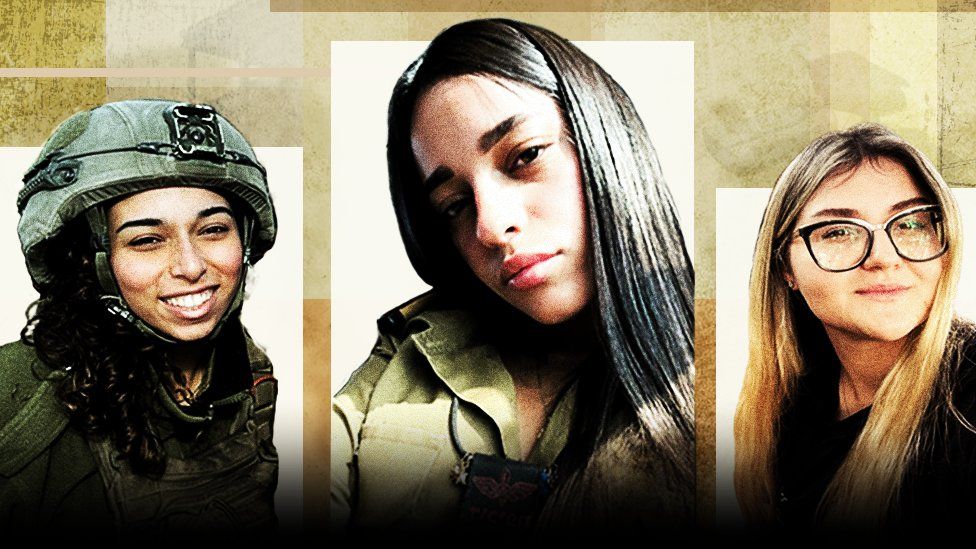
By Alice Cuddy
BBC News, Israel
They are known as Israel’s eyes on the Gaza border.
In the months leading up to the 7 October attacks by Hamas, they did begin to see things: practice raids, mock hostage-taking, and farmers behaving strangely on the other side of the fence.
Noa, not her real name, says they would pass information about what they were seeing to intelligence and higher-ranking officers, but were powerless to do more. “We were just the eyes,” she says.
It was clear to some of these women that Hamas was planning something big – that there was, in Noa’s words, a “balloon that was going to burst”.
The BBC has now spoken to these young women about the escalation in suspicious activity they observed, the reports they filed, and what they saw as a lack of response from senior Israel Defense Forces (IDF) officers.
These women were not the only ones raising the alarm, and as more testimony is gathered, anger at the Israeli state – and questions over its response – are mounting.
The BBC has spoken also to the grieving families who have now lost their daughters, and to experts who see the IDF’s response to these women as part of a broader intelligence failure. The IDF said it was “currently focused on eliminating the threat from the terrorist organisation Hamas” and declined to answer the BBC’s questions.
“The problem is that they [the military] didn’t connect the dots,” a former commander at one of the border units tells the BBC.
If they had, she says, they would have realised that Hamas was preparing something unprecedented.